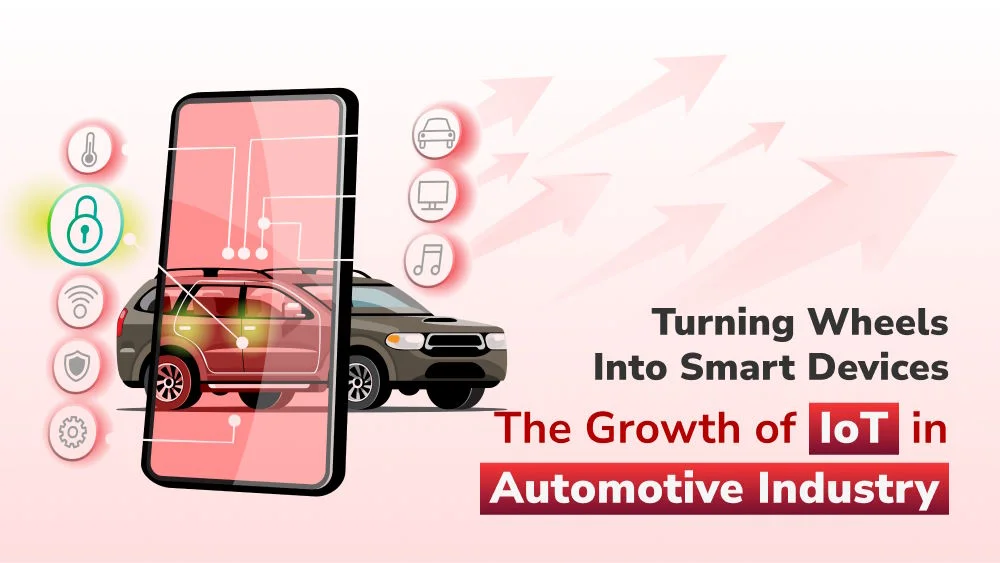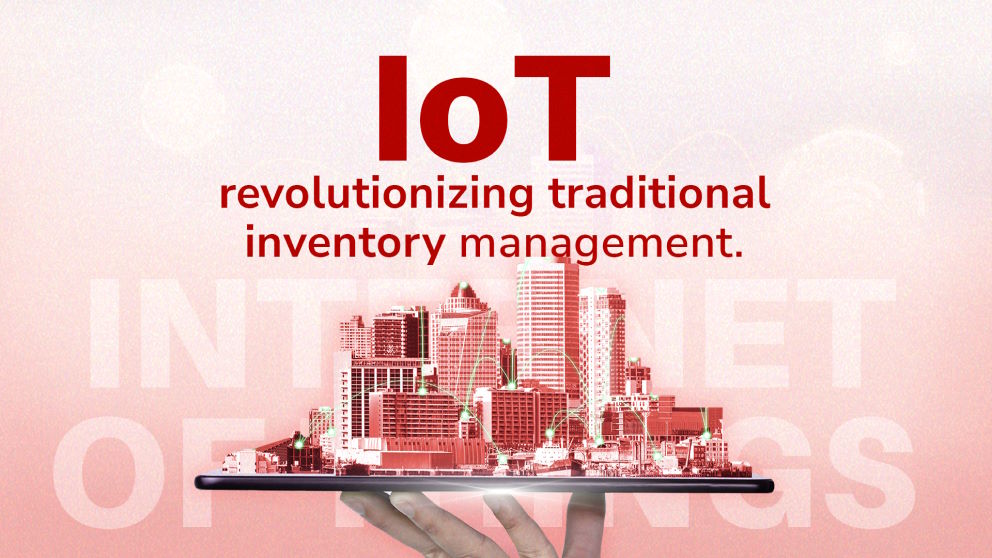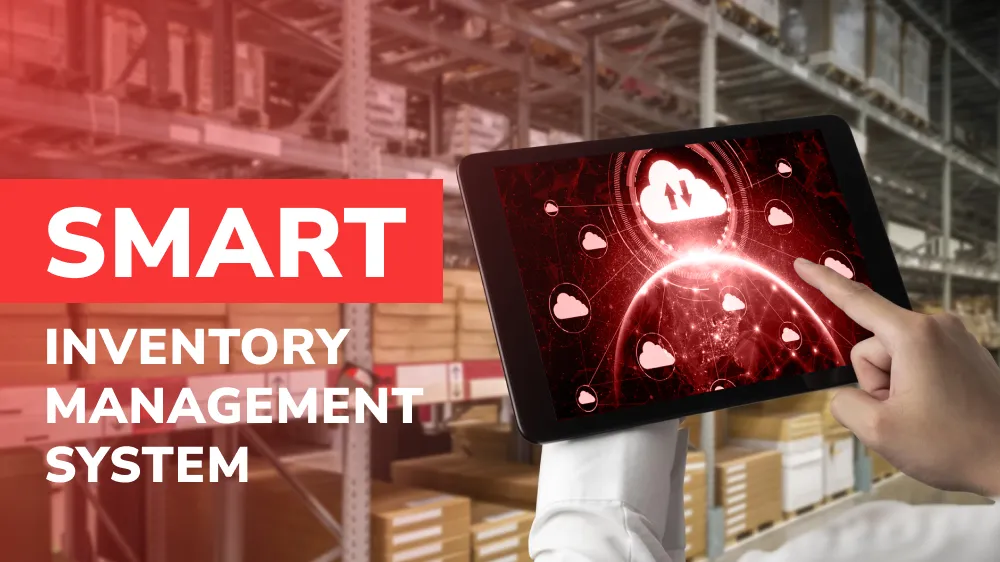
Can a Smart Inventory System Really Improve My Bottom Line?
Stuck with stockouts & wasted storage? Discover how a smart inventory system can revolutionize your bottom line.

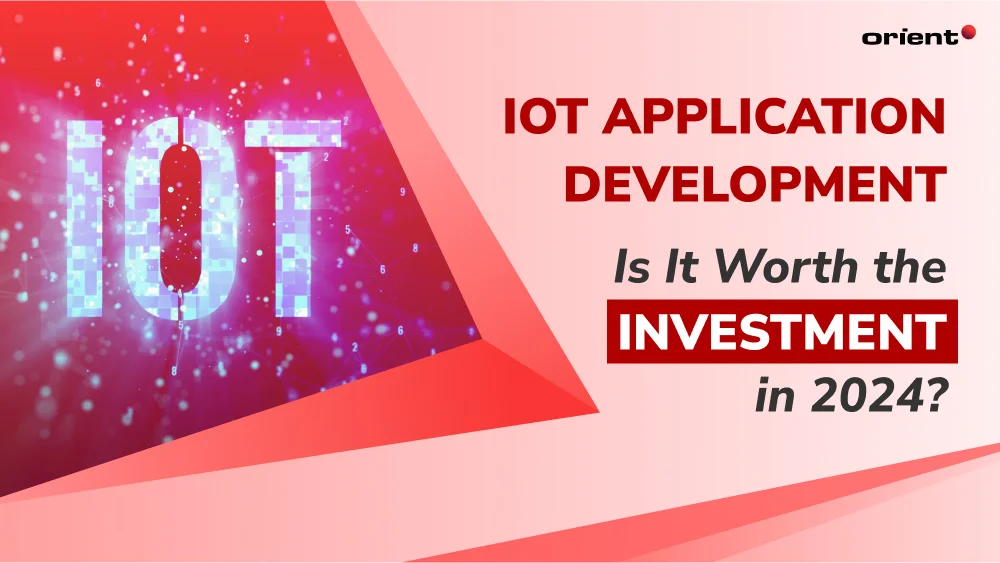
The Internet of Things (IoT) has revolutionized the way we interact with everyday devices.
By transforming otherwise ordinary devices into ‘smart’ devices, they can communicate wirelessly with other devices and give users the ability to modify and even automate their functionality. This opens up a world of possibilities in terms of how they can benefit both individuals and businesses.
How so? There are many real-world examples where smart technology has significantly benefited human. Smart home ecosystem which integrates various devices to create an IoT system that can be controlled remotely via connected devices is one of the most popular examples of IoT.
But just how can businesses take advantage of IoT application development and custom software development to improve the safety, security, productivity, and efficiency of their business? Here are just a few simple and effective ways that utilizing the Internet of Things could be a game-changer for you.

It is not difficult for you to find any application of IoT platforms in daily life. Besides the application of IoT in smart cities, such innovative technology also appears in the retail sector. Retail stores have begun using IoT apps to collect valuable consumer data, review their shopping behaviors and purchase patterns, and adjust their businesses accordingly – even something as small as changing where a popular product is placed in a store – in order to enhance the customer experience and boost sales.
The benefits that IoT platforms bring to people are unlimited. Not only do they help users improve their quality of life as a whole, but integrating this advanced technology into products and services also boosts a company’s business efficiency regardless of scale. Here is the IoT application development benefit breakdown from a business perspective.
Smart cameras and motion sensors can be set up in multiple areas of your business to protect your premises. These devices typically come bundled with software, which you can install and use on your desktop or mobile device.
When the devices detect any abnormal or irregular behavior, you will receive an instant alert on the appropriate devices – via email, text, or instant message – to respond to the situation before it escalates. This is ideal for business owners who worry about theft, loss prevention, and unauthorized breaches, especially outside of normal business hours.
Preventable workplace accidents happen on a daily basis around the world. Utilizing smart technology can help you prevent disasters from striking before they happen. Smart devices can help reduce the potential for human errors, detect abnormalities in industrial equipment, and alert staff to a potential hazard before it occurs. With the right IoT development application, users can be instantly notified of an issue with the workplace or their equipment and then take the necessary steps to rectify the issue – whether it be to shut down the equipment, evacuate, or temporarily restrict staff movement until the area is safe.
Data-driven insights can help you learn more about your customers than what they would ever tell you in person. The retail sector is employing iBeacons and geofencing to better understand customer movement in physical locations. They then collect this information to improve the design of their physical stores, determine where the most popular products should be placed, and help make their physical stores more enticing and attention-grabbing to enter.
Meanwhile, the manufacturing sector is using IoT technology to improve the quality of the goods they create and better manage their inventory. They can assess the quality of their products at every step of the manufacturing process, detect any anomalies, and ensure their equipment and procedures are up to standard. Furthermore, they can be alerted of potential stock shortages – well in advance – and submit an order to ensure that what they need is available.
Companies that use IoT development applications wisely are more likely to stand out as modern, contemporary, and trustworthy to their audience. This also extends to potential business partners, investors, and stakeholders. In fact, IDC expects Internet of Things spending in Asia Pacific to reach $437 billion in 2025.
For example, if an IoT application was to help a business solve the issue of poor customer retention – by, for example, improving their emergency response time – then this would make them look more favorable to an investor. This shows investors that they are willing to continuously improve their business and practices.
Furthermore, companies that invest in IoT solutions may attract higher-quality talent. This is especially true for companies that use the IoT to optimize the workplace. This includes measuring occupancy, air quality, acoustics, lighting, and even monitoring employee satisfaction.
As a result, candidates are more likely to seriously consider an offer from a company that puts in the effort to provide a secure, comfortable, and convenient work environment – something that smart buildings can definitely offer.
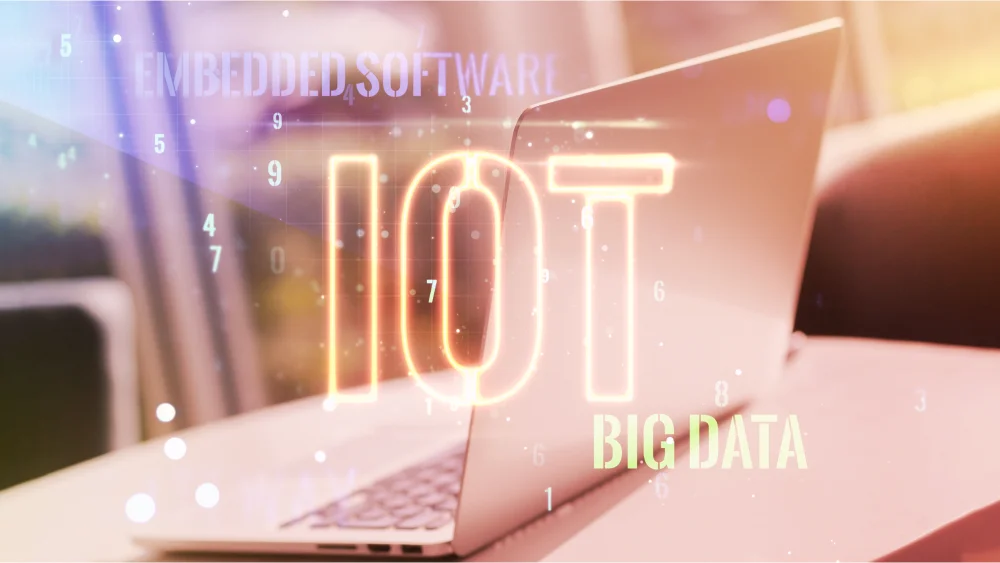
Just like introducing any kind of technology into a business, adopting IoT should be done wisely. Remember, using technology should help make your life easier, not another chore to manage or a checklist to tick off. For this reason, it’s worth understanding the potential risks of IoT mobile app development so that you can decide if it is a wise investment for your business.
Here is a quick rundown of the potential risks to watch out for:
Depending on the quality of the product, the installer, and the network in which the device will operate, IoT devices should have various layers of security to protect against theft, data breaches, and unauthorized access.
When you hire a software development company to produce an IoT development application, make sure they consider your unique security risks and design the app to be safe against these risks.
This is why the development and implementation of IoT solutions should be handled by professionals so that you have the assurance that your staff, clients, customers, and organization are safe from any hacking attempts.
The implementation of IoT apps can be huge depending on your needs. They require a stable and reliable network infrastructure, a capable power source, frequent software and security updates, and a manual team to oversee the equipment.
For this reason, budget your IoT solution accordingly. While the average cost of an IoT solution can vary considerably, industry experts say the price tag for a commercial solution can range from $10,000 to $50,000 USD or higher.
Consider what your business can afford today, what you can afford in running costs, and the kind of savings you hope to achieve.
IoT solutions require the support of highly skilled, knowledgeable, and experienced individuals. These range from software developers and installation experts to technicians. The job of these specialists is to help you choose the right IoT solution, make sure that your hardware and software are set up correctly, and regularly monitor your system to ensure it is running optimally.
For this reason, make sure the people you choose have relevant experience in projects like yours. They should have the evidence to back this up (i.e., positive reviews, case studies), and the solutions they provide should comply with your unique industry standards. This way, you won’t have to worry about hiring another company later on to fix the mistakes of the first one.
With a well-planned IoT application development process, enterprises can successfully develop IoT apps that minimize security-related risks and align them with a given business case. Each different company often has different working processes. However, there are some basic steps to help you ensure an effective deployment as follows:
1. Identify the Use Case: Like any software development process, things start with deciding the reason for developing IoT applications. Is it for industrial control or improved operational efficiency? Define the problem you want to solve with IoT by clearly outlining the objectives, technical requirements, and expected outcomes of the application.
2. Choose the Right IoT Platform: IoT platforms play an important role in providing users with the necessary tools for automation, processing, and analysis. When choosing platforms, it is recommended to weigh factors such as ease of development, cloud integration, and analytics capabilities to ensure business requirement alignment. AWS IoT, Google Cloud IoT, and Microsoft Azure IoT are some famous platforms you should consider.
3. Design the Architecture: It is time to decide how the devices will connect, transfer data, and communicate within the IoT system by defining the application’s structure, its interaction, and its main components. Consider factors including security measures, data flow mechanics, integration challenges, and communication protocols.
4. Develop the IoT Application: Build the IoT app according to the defined architecture and use case in the previous steps. The development process involves creating APIs for device communication, developing the backend infrastructure, and designing the user-friendly interface.
5. Integrate Sensors and Devices: Once the IoT app is ready, connect it with target IoT sensors within your enterprise’s network to collect data and enable interactions. Factors related to compatibility and security need to be focused and monitored regularly to ensure smooth data flow.
6. Implement Data Analytics: Raw data will not bring any value if not extracted effectively. Using and integrating with data analytics tools, which are strong in data analysis, data management, monitoring performance, and identifying trends, helps in this situation.
7. Test and Iterate: Whether your IoT application is working well or not, updating and maintaining the IoT system needs to happen regularly for a smooth workflow. Gathering feedback and iterating in the design based on user feedback after release is an ideal way to meet evolving needs.

There is no specific formula for software development cost, and IoT app development cost is no exception. To estimate the exact budget for the development process, you first need to understand what your app-building needs are by listing the necessary technical requirements. How does the IoT app scale? How many developers are needed to complete the creation of an IoT application? Does your solution integrate with any third-party services or platforms?
The factors, including complexity, features, development time, technology stack, and team expertise, are the foundation to give a specific number for the cost of IoT application development. Generally, the cost breakdown includes:
IoT has become one of the most promising digital technologies in recent years, and it looks to have widespread adoption across multiple industries in the years to come. While there are risks involved, if you take the time to research your options and carefully plan your budget, you can benefit greatly from implementing the IoT into your business.
Whether you want to automate your inventory management practices, monitor employee satisfaction and morale with smart technology, or make use of smart sensors to make your workspace more efficient and comfortable, there is a solution out there for you. You just need to determine what problems you want to solve, the outcomes you hope to achieve, and what it will take to get there.
One of the best ways to plan for an IoT project is to approach a custom software development team for the Internet of Things. They can assess your technological and business requirements and propose a custom solution that fits your needs and budget. And they can provide post-launch support and updates to ensure that your system delivers the best possible experience for your end users.
As a reliable outsourcing company with almost two decades of experience in the tech industry, Orient Software has made many projects successful across fields. Contact us to learn more about software-related services and how we can help your business grow.
Stuck with stockouts & wasted storage? Discover how a smart inventory system can revolutionize your bottom line.
This beginner-friendly guide explains everything you need to know about IoT architecture!
How is smart technology revolutionizing vehicles and driving experiences? Explore the impact of IoT in automotive industry.
Discover how the enormous influence of IoT in telecommunications can enable new services, increase efficiency, and improve the overall customer experience.
Supply chain processes once relied completely on manual operations. However, the integration of IoT in inventory management has transformed the whole industry.

